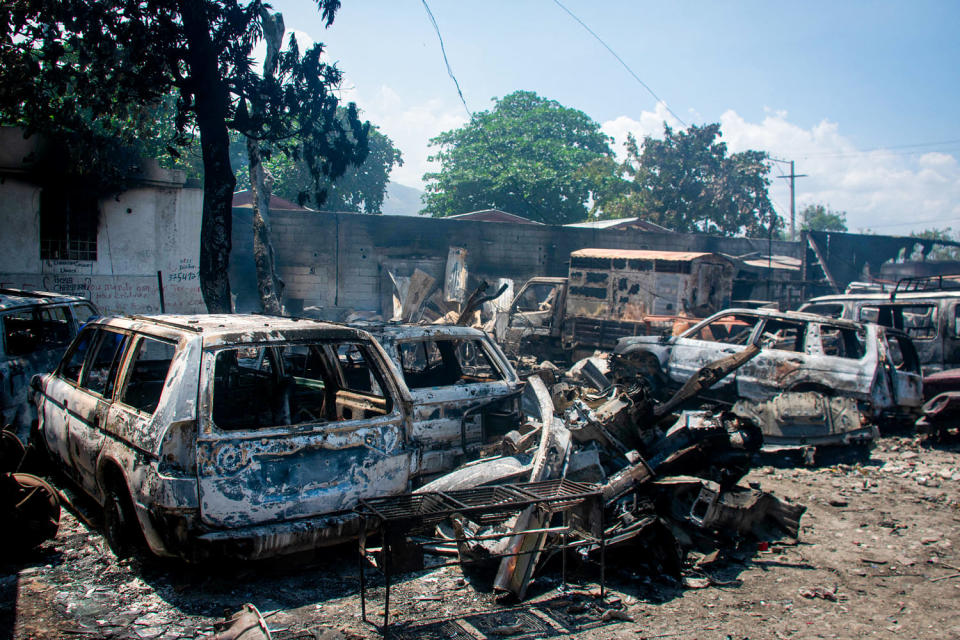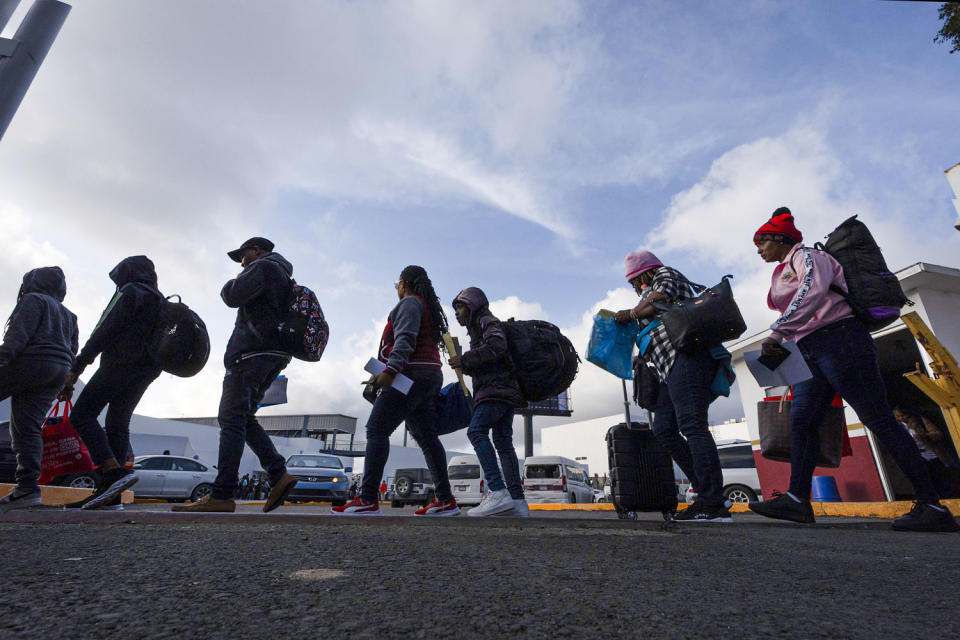Biden admin has no plans to change how it treats Haitian migrants despite anger from advocates
The Biden administration is under increasing pressure from human rights organizations to rethink its treatment of Haitian migrants trying to flee Haiti or currently living undocumented inside the U.S., but so far there are no plans to change course, three U.S. officials told NBC News.
More than 480 human rights organizations sent a letter to the Biden administration on Wednesday asking for a moratorium on deportations to Haiti, the immediate release of detained Haitian migrants, the closure of pending deportation cases for Haitian migrants and a new designation of Temporary Protected Status that would let more Haitian migrants already living in the U.S. remain in the U.S.
“If the United States cannot keep its personnel safe in Haiti, then the Haitian government is unlikely to keep Haitian nationals safe,” said the letter, referring to the U.S. mission to airlift Americans out of Haiti.
For more on this story, tune in to "NBC Nightly News with Lester Holt" tonight at 6:30 p.m. ET/5:30 p.m. CT or check your local listings.
U.S. officials say there has been moral handwringing inside the administration, both at the White House and the Department of Homeland Security, over the issue.
“It’s heartbreaking,” one U.S. official said, adding that there are no plans to allow more Haitian migrants into the U.S.
“There are no good options here,” said another U.S. official.
The Biden administration is facing sharp backlash on its immigration policies, including from some Democratic mayors, heading into the November presidential election. Customs and Border Protection has made more than 10 million apprehensions of undocumented migrants trying to cross the southern border since the beginning of the administration, many of them Haitian. Crossings hit record monthly levels in late 2023, though they have now dropped.
Since gangs took over Haiti this month, forcing Prime Minister Ariel Henry to announce his resignation, the Caribbean nation has been engulfed in violence.

The Biden administration has not deported Haitian migrants back to their home country by plane since the violence began, in large part because the airport in the capital and largest city, Port-au-Prince, has been taken over by gangs. But it has continued sending migrants who are interdicted at sea back to Haiti by boat.
On March 14, the U.S. Coast Guard returned 65 Haitians found on a sailboat at sea.
“Those interdicted at sea are subject to immediate repatriation pursuant to our longstanding policy and procedures," a spokeswoman for DHS said. "The United States returns or repatriates migrants interdicted at sea to The Bahamas, Cuba, the Dominican Republic, and Haiti."
A spokeswoman for the White House’s National Security Council said the Biden administration’s approach is to help Haitians pave a path to democracy.
“If our goal was to bring everyone from around the world whenever there’s a crisis, we would have a huge problem,” the NSC spokeswoman said.
She noted that the U.S. has been working to help the situation for over a year. The U.S. government has provided more than $170 million in humanitarian aid since October 2022, making it the single largest humanitarian assistance provider to Haiti.
No protected status
Two U.S. officials told NBC News that the Biden administration will not change the policy of returning Haitians interdicted at sea because they do not want to trigger mass migration.
The officials also said that the current crisis has not yet spurred the U.S. to consider granting Temporary Protected Status (TPS) to an additional group of undocumented Haitians.
TPS has historically been used to let nationals from a country facing a humanitarian crisis legally live and work inside the U.S, whether the crisis at home is due to political upheaval or a natural disaster. TPS is granted by the president.
Many Haitian migrants who arrived in the U.S. in the past already have TPS, including those who came after Haiti’s 2010 earthquake.
Advocates for Haitian refugees argue the administration set a double standard by granting TPS to a new group of Venezuelans last summer, when conditions in Venezuela were less dire than the current situation in Haiti.

The fear of using TPS for Haitians now, two officials said, is that it will send the wrong message to Haitians that they will be allowed to stay in the U.S. if they can make it here. But, they acknowledged, it is a terribly violent situation to which to return anyone.
“There’s an acknowledgement this is really difficult,” said a U.S. official. “But we don’t want to encourage more people to take to the sea.”
Guerline Jozef, a human rights advocate and co-founder of the Haitian Bridge Alliance, which led the letter sent Wednesday, said the Biden administration should rethink its policy. She said accepting desperate migrants who are lucky enough to escape would not trigger mass migration because it is so hard to get out.
“It is almost impossible to leave Haiti,” Jozef said.
U.S. officials noted that those recently interdicted at sea are not being sent back to Port-au-Prince, where most of the violence is concentrated, but in other parts of Haiti like the northern city of Cap-Haïtien.
“There is no excuse to send anyone to anywhere in Haiti right now. They are using this as an excuse for the inexcusable,” Jozef said. “The whole country is unstable.”
This article was originally published on NBCNews.com

